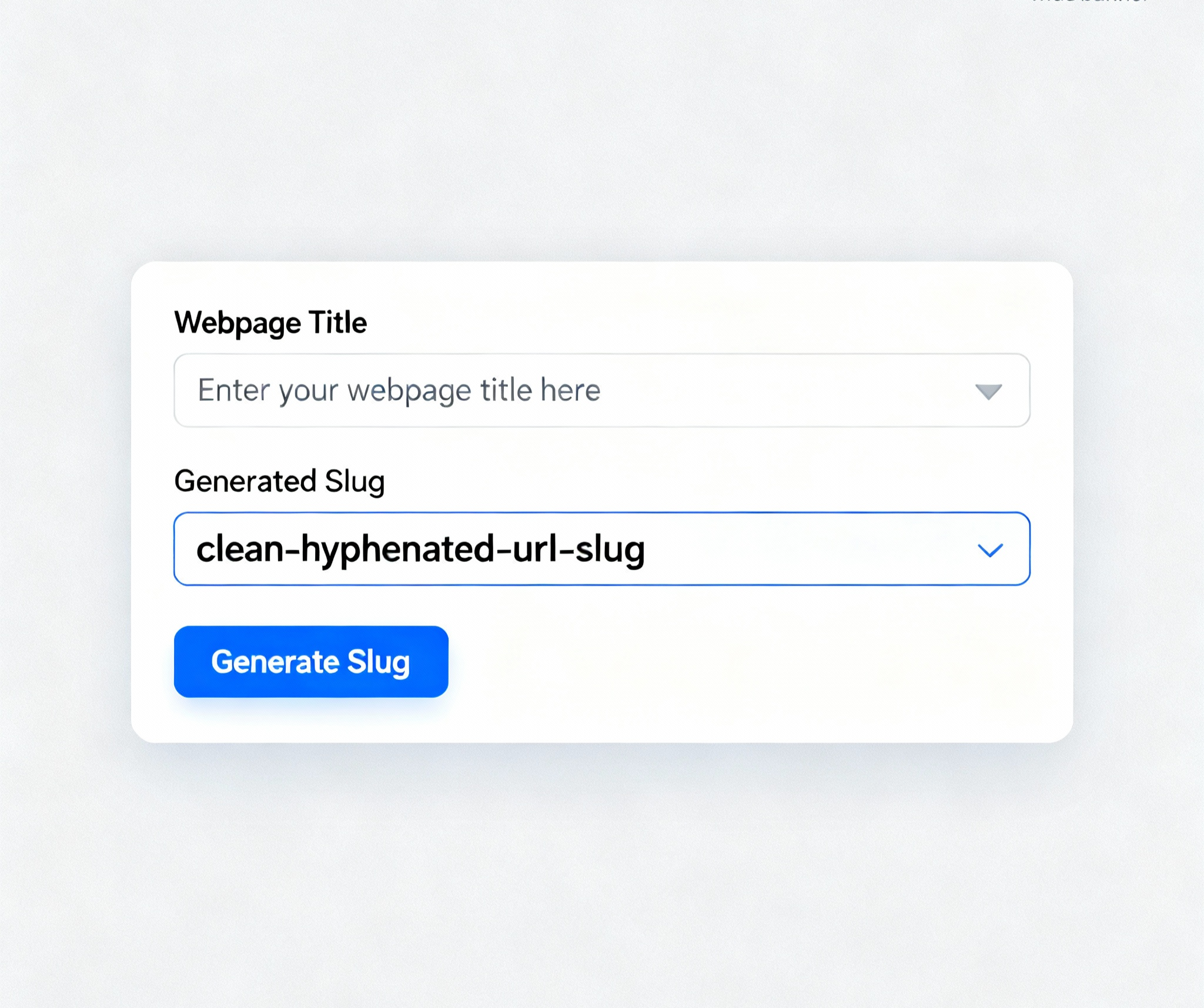
Slug generator
Created on 19 October, 2025 • Generator tools • 78 views • 2 minutes read
A slug generator is an indispensable tool in modern web development and content management.
Slug Generator: Optimize URLs for SEO and Readability
A slug generator is an indispensable tool in modern web development and content management. It transforms long, complex titles or phrases into concise, user-friendly, and SEO-optimized URL slugs. With the internet’s vast landscape filled with information, having clean and descriptive URLs can significantly impact how your website performs in search rankings as well as the experience of your users. Let’s explore the ins and outs of slug generators, their benefits, and how to use them properly.
What is a Slug Generator?
A slug generator is an online tool or script that converts a title or phrase into a URL-friendly “slug.” A slug is the part of a URL that comes after the domain and usually identifies a specific page or post. For instance, the title “How to Use a Slug Generator for SEO” might become the slug “how-to-use-a-slug-generator-for-seo.”
Slug generators work by:
- Converting all letters to lowercase
- Removing special characters and extra whitespace
- Replacing spaces with hyphens
- Trimming unnecessary words (in advanced tools)
This process ensures your URLs remain straightforward and easy for both humans and search engines to read and index.
Why Use a Slug Generator?
1. Enhanced SEO Performance
Search engines like Google favor clean and descriptive URLs. A well-generated slug clearly communicates the content of a page, increasing the likelihood of ranking higher in search results. For example, a slug like “best-coffee-shops-new-york” is more meaningful and SEO-friendly than a random URL with numbers or symbols.
2. Better User Experience
Readable slugs make navigation easier for users. When someone sees a clear, relevant slug, they instantly understand what the page is about. Short slugs are also simpler to remember and share across platforms, further boosting traffic and engagement.
3. Consistency Across Pages
Slug generators promote uniformity across your website. Consistent URL structures are easier to manage, especially as your site grows to include many posts or product pages. Automated slug generation reduces the potential for human error and makes content management more efficient.
How Does a Slug Generator Work?
Using a slug generator is simple: input your title or phrase, and the tool quickly converts it into a slug. Behind the scenes, the generator applies a set of rules to remove unwanted characters, excess spacing, and uppercase letters. Advanced slug generators even strip out stopwords (like “the”, “and”, “is”) to produce even shorter, punchier URLs.
Modern CMS platforms such as WordPress or Joomla integrate slug generation directly into their publishing workflows. For developers, there are open-source slug generator libraries available in languages like JavaScript and Python, enabling integration into custom web applications.
Best Practices for Using a Slug Generator
- Keep it Short and Descriptive: Focus on key terms that reflect the core topic of your page.
- Use Hyphens to Separate Words: This improves readability and SEO value.
- Avoid Special Characters: Stick to letters, numbers, and hyphens to prevent browser or server issues.
- Review for Relevance: Double-check generated slugs to ensure they accurately describe the page and are free from errors or omissions.
Conclusion: Improve SEO and Clarity with a Slug Generator
A slug generator streamlines the process of creating clean, SEO-optimized URLs for blogs, product pages, and any web content. By implementing a reliable slug generation tool in your workflow, you enhance visibility, improve user trust, and drive growth for your website.
Popular posts
-
GIF to BMPImage Manipulation tools • 583 views
-
GIF to WEBPImage Manipulation tools • 462 views
-
GIF-to-PNGImage Manipulation tools • 363 views
-
SHA-3/512 generatorConverter tools • 292 views
-
GIF to JPGImage Manipulation tools • 257 views